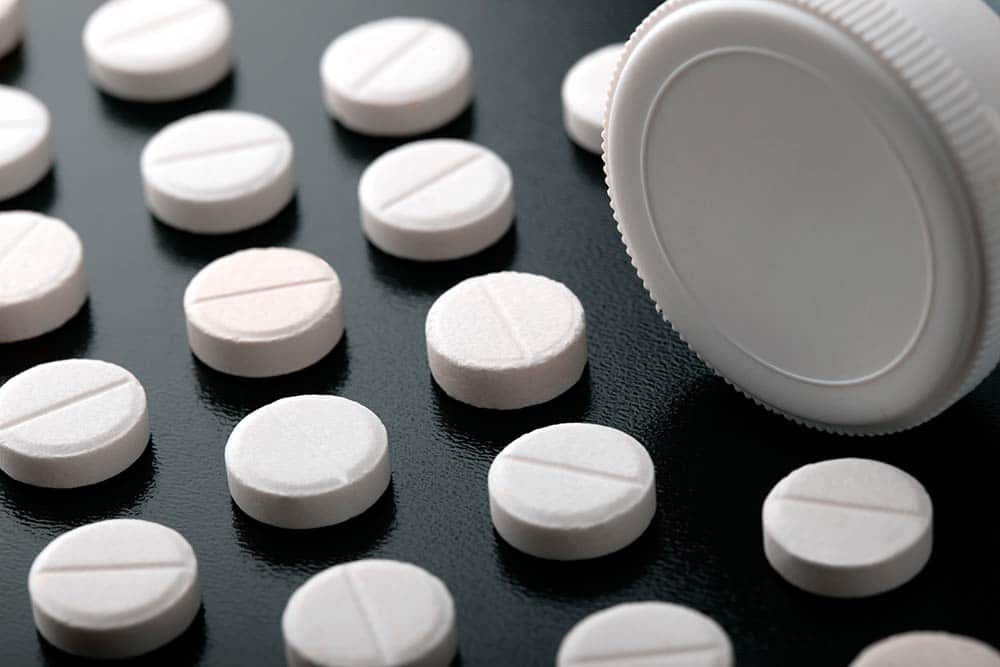Table of Contents
Signs and Symptoms of Adderall Abuse
How do you know if you or someone you love is addicted to Adderall? We’ve put together several common signs and symptoms of Adderall abuse.
Adderall is a potent and effective medication for treating Attention Deficit Hyperactivity Disorder (ADHD). This is a condition that affects millions of people in the US alone. Unfortunately, Adderall is also addictive and has a high potential for abuse. People abuse Adderall for several reasons. It can be an intoxicant, causing feelings of well-being, hyper-alertness, and euphoria.
But Adderall is also abused by students attempting to sharpen and increase their cognitive abilities, leading to its moniker as a “study drug.” In this instance, Adderall is used neither as an intoxicant nor a means of getting high. Rather, when students abuse Adderall, they’re trying to push their attention and alertness to their maximum, but the intent behind Adderall abuse makes no difference in its ability to addict.
As is the case with many drugs of abuse, Adderall leads to both psychological and physical dependence.
What Are the Signs of Adderall Abuse?
Adderall is a combination of two prescription stimulants, amphetamine and dextroamphetamine. They work within the central nervous system to stimulate the effectiveness of dopamine and norepinephrine, two neurotransmitters that increase a person’s ability to focus and stay on task. They also produce feelings of well-being.
Because this specific prescription medication is so habit-forming, transitioning from recreational use or experimentation to physical and psychological dependence is not uncommon.
Below are some of the most common symptoms of Adderall abuse.
Physical Signs of Adderall Abuse
- Racing heartbeat
- Elevated blood pressure
- Nervous twitches
- Minor muscle tremors
- Withdrawal symptoms with ceased use (which can be physical and psychological)
Behavioral Signs of Adderall Abuse
- Hyperfocus and task creep, e.g., organizing one’s sock drawer in a precise fashion, then rapidly switching to painting one’s bedroom
- Rapid speech
- Increased sociability
- Temper outbursts and increased irritability
- An increase in out-of-character risk-taking behaviors
- Panic attacks
- Spending a lot of time attempting to obtain Adderall
- Being preoccupied with ensuring one always has a supply of Adderall
- Doctor shopping (moving around from doctor to doctor in hopes of obtaining more than one prescription at a time)
- Using the drug in different ways to feel its effects more quickly (such as crushing the drug and snorting it or even injecting it intravenously, in extreme cases).
- Developing a tolerance (requiring greater amounts of Adderall to experience the same ‘high’)
Cognitive Signs of Adderall Abuse
- Feelings of grandiosity (feeling so self-confident that you believe you are better than others or that you are invincible)
- Racing thoughts
- Flight of ideas—one’s train of thought hopping from idea to idea
- Intense feelings of euphoria and well-being
- Increased nervousness, worry, or anxiety
- Mood swings
- Feeling anxious and uncomfortable when Adderall is unavailable.
- Psychosis
Dangers of Adderall Addiction
Adderall addiction can lead to overdose and death. Overdosing on Adderall has been known to cause strokes, liver failure, and heart attacks. In addition, mixing Adderall with other substances, such as cocaine or alcohol, greatly increases a person’s chances of a dangerous overdose.
As with all addictive substances, Adderall can also significantly change how the brain’s neurocircuitry works. These changes can lead to anxiety, depression, and significantly impaired behavior. It’s not uncommon for people who’ve abused stimulants like Adderall to become impulsive and suicidal.
A person may lose contact with reality when abusing Adderall. This is called psychosis and is a medical emergency.
Adderall Addiction Recovery
At Absolute Awakenings, we have extensive experience treating those suffering from an Adderall abuse disorder. We understand how difficult quitting can be, and we can help you through every step. Adderall addiction affects the afflicted individual and can greatly disrupt the lives of their loved ones. For this reason, we offer family counseling services and ongoing family support. In addition, our comprehensive program of Adderall abuse and addiction recovery is geared towards helping people of all ages and personal backgrounds go on to lead the healthy and productive lives they deserve.
If you or someone you love is struggling with Adderall abuse or addiction, call us today. Our specialists are available around the clock to assist you. Our recovery specialists are waiting to assist you or a loved one in your fight against addiction.
References
- Adderall: Uses, Dosage, Side Effects & Safety Info. Drugs.com. Accessed January 20, 2023. https://www.drugs.com/adderall.html
- Varga MD. Adderall abuse on college campuses: a comprehensive literature review. J Evid Based Soc Work. 2012;9(3):293-313. doi:10.1080/15433714.2010.525402
- Dextroamphetamine-Amphetamine Oral: Uses, Side Effects, Interactions, Pictures, Warnings & Dosing – WebMD. Accessed January 20, 2023. https://www.webmd.com/drugs/2/drug-3670-9323/dextroamphetamine-amphetamine-oral/dextroamphetamine-amphetamine-extended-release-oral/details
Absolute Awakenings Treatment Center Editoral Guideline
At Absolute Awakenings, we take information integrity seriously. We have dedicated our resources to ensure that all content published to our blog is medically sound. As such, all content on our blog has been thoroughly reviewed by a doctorate level clinician such as a Medical Doctor, or Psy.D, so that you can trust all of the data we publish.







